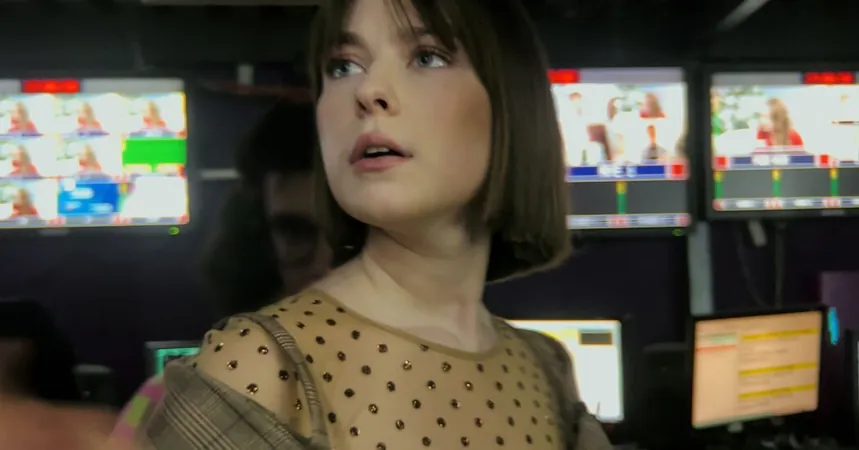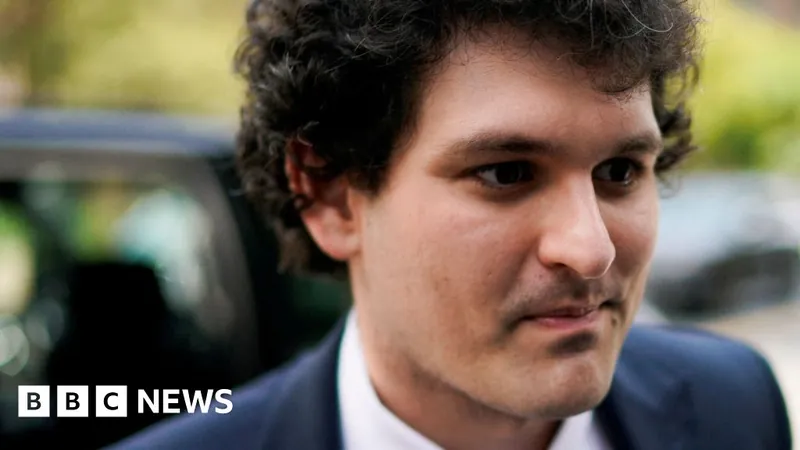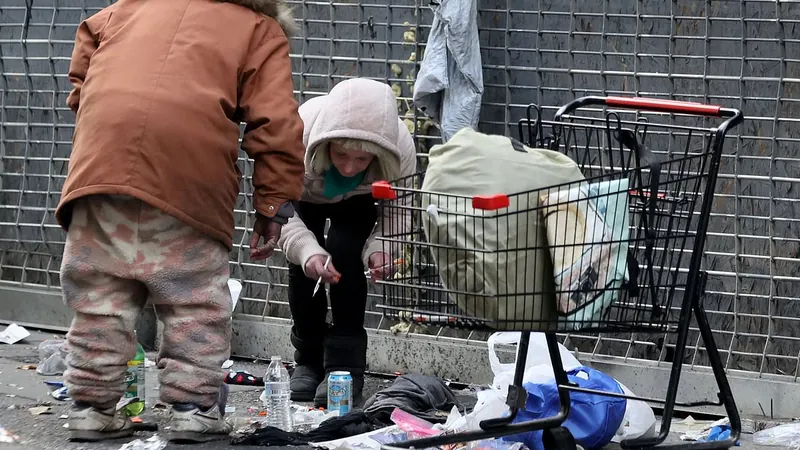
The New York Film Festival: A Rising Star for Nonfiction Filmmaking
2024-10-07
Author: Lok
Documentary Genre in 2024
In an intriguing twist for the world of cinema, the documentary genre is emerging as a paradoxical beacon of creativity in 2024. While the number of documentary films is on the rise, many filmmakers express frustration over increasing difficulties in securing funding and distribution. Streaming platforms are overflowing with an ever-growing collection of true crime and biographical offerings. However, these films often lack depth, feeling rushed and formulaic, designed more for passive viewing than for genuine engagement. As a result, many artists striving to transform reality into art are struggling to get their voices heard.
Film Festivals as Lifelines
Amidst this challenging landscape, film festivals have become lifelines for independent and international documentarians seeking to connect with audiences and find distributors. Yet, at some prominent film festivals, documentaries can sometimes feel undervalued, relegated to a secondary status unless they feature a celebrity. Festivals like Cannes are particularly notorious for offering scant representation to nonfiction films.
The New York Film Festival's Support
Fortunately, the New York Film Festival (NYFF) stands out as a supportive platform for independent filmmakers. This year, the festival proudly showcases 18 feature-length documentaries and 10 nonfiction shorts, integrating these works into various categories alongside narratives, rather than isolating them in separate slots. In a striking contrast to many events, NYFF has opted to spotlight two world premieres this year, both of which are documentaries.
Highlighting Documentaries in the Lineup
Among the lineup are celebrity-focused documentaries, including R.J. Cutler and David Furnish's “Elton John: Never Too Late” and Alex Ross Perry's avant-garde piece “Pavements.” The latter film presents a unique mix of media, including a Pavement jukebox musical and an unreleased dramatic portrayal of lead singer Stephen Malkmus. Despite drawing from familiar subjects, “Pavements” cleverly satirizes the conventions of musician biopics, providing an experience that’s as entertaining as it is thought-provoking.
Diverse Themes Explored in Documentaries
However, not all documentaries at the festival embrace a lighthearted tone. Dimitris Athiridis’ ambitious “Exergue – on Documenta 14” spans an incredible 14 hours, offering a chaptered narrative that examines not just the exhibition itself but also the growing challenges facing the contemporary art world—such as racism, colonialism, and the impact of political power.
Director Wang Bing returns to the festival with the continuation of his trilogy, which began last year. Following “Youth (Spring),” which focused on workers in Chinese garment factories, the new installments delve deeper into the social struggles of these individuals. “Youth (Hard Times)” contemplates labor organization efforts, while “Youth (Homecoming)” explores their return to hometowns. These epic narratives immerse the audience in the lived experiences of their subjects, challenging viewers to reflect on the very nature of labor and industry.
Powerful Contemporary Voices
One of the standout features of this year’s festival is Julia Loktev's gripping “My Undesirable Friends: Part I – Last Air in Moscow.” This powerful documentary, filmed shortly before the invasion of Ukraine, sheds light on the plight of dissident female journalists in Russia. As authoritarian forces clamp down on dissent, Loktev’s film becomes a vital examination of the threats faced by media voices in oppressive regimes. With a runtime of five and a half hours, it promises an impactful experience that reflects the harsh realities of contemporary journalism.
Challenging Traditional Narratives
As the festival unfolds, it’s clear that the traditional narrative style often overshadows the innovative approaches in the documentary sphere. “Nickel Boys,” the festival’s opening-night film, though a work of fiction based on Colson Whitehead's novel, captures the essence of Ross’s earlier documentary work by questioning how stories about Black individuals are portrayed in cinema.
Conclusion: A Bright Future for Nonfiction Storytelling
With filmmakers like RaMell Ross blending documentary sensibilities into narrative work, the New York Film Festival is championing the idea that powerful, innovative nonfiction storytelling has just as crucial a place in the cinematic landscape as any scripted film. As audiences collectively navigate the complexities of contemporary issues through documentaries, film festivals like NYFF serve as vital forums for fostering conversation and engagement in today's media landscape.
A Call to Action
Don't miss out on the most revolutionary documentaries of the year—explore the NYFF lineup and experience the truth in storytelling!





 Brasil (PT)
Brasil (PT)
 Canada (EN)
Canada (EN)
 Chile (ES)
Chile (ES)
 España (ES)
España (ES)
 France (FR)
France (FR)
 Hong Kong (EN)
Hong Kong (EN)
 Italia (IT)
Italia (IT)
 日本 (JA)
日本 (JA)
 Magyarország (HU)
Magyarország (HU)
 Norge (NO)
Norge (NO)
 Polska (PL)
Polska (PL)
 Schweiz (DE)
Schweiz (DE)
 Singapore (EN)
Singapore (EN)
 Sverige (SV)
Sverige (SV)
 Suomi (FI)
Suomi (FI)
 Türkiye (TR)
Türkiye (TR)